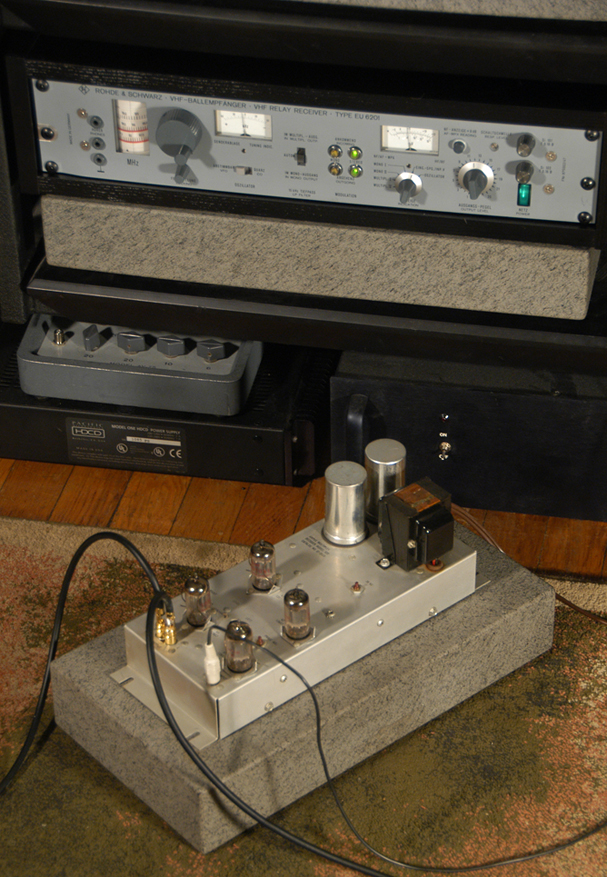|
Continue in my journey to found an optimum solution for Multiplex stereo decoder I made today some experiments with Ampex multiplex decoder with intention to see if it would be able to offers any advantages over Sansui’s HA11223W-based PLL multiplex.
It is the very much original Ampex with all original parts and I decided to use it as is, though quite a few thighs might be improved in this decoder. Ampex is a discrete tube based devise that takes advantage not of the sum and difference of the signal individually for each channel but rather the time-multiplex aspect of stereo signal. With all simplicity of the Ampex’s circuit it has some kink. Most of the similar decoders had a set of diodes the toss signal right and left. The Ampex has a pair of the diodes sets and they toss signal to the right channels or ground it. This way the signal for a given channel does not flow through those diodes – very slick and reminds a shunt regulator in way….

So I was using the composite mono signal from two sources: the Sansui’s TU-X1 Intermediate Frequency stage and from the none-filtered wide bandwidth output of Rohde & Schwarz EU-6201 FM Broadcast Relay. The composite signal from those two courses I fed into ether TU-X1’s own PLL decoders and output stage or to the Ampex’s phase-multiplex decoder.
The TU-X1’s decoder if very finicky and it wants only very precise max amplitude. So, I needed to attenuate the Rohde & Schwarz’s over 24dB to set the as they call it “synergy”. Anyhow, after EQ the volumes and do all necessary preparations I make the experiment methodological clean I was able to listen it.
I do not what to write a long post about it and will make it very short. It was no rivalry or even an attempt to compete: The TU-X1’s PLL decoder and output stage juts obliterated Ampex in each imaginable competition… The TU-X1 sounded as… the TU-X1. The Rohde & Schwarz through the TU-X1’s multiplex decoders sounded very similar. However, both tuners, feeding the Ampex decoder sound like shit.
Well, I kind of a good result as all the I need to do now is what I intended to do to begin with: to make in Sansui TU-X1 an extra input feeding the output stage with externals MPX signal from the Schwarz and to implement a switch between the sources. The very good part is that in this configuration I would have no need to use nether two A/D possessors nor to re-plug the cables from tuners to A/D.
Well, I know that it would be VERY difficult to beat the TU-X1 out stage I hardly heard from any other electronics this result, did I mention the consumer-level, cheap mass market electronics? So, just in case I bought a half dozen of the HA11223W chips…. Rgs, The caT
"I wish I could score everything for horns." - Richard Wagner. "Our writing equipment takes part in the forming of our thoughts." - Friedrich Nietzsche
|